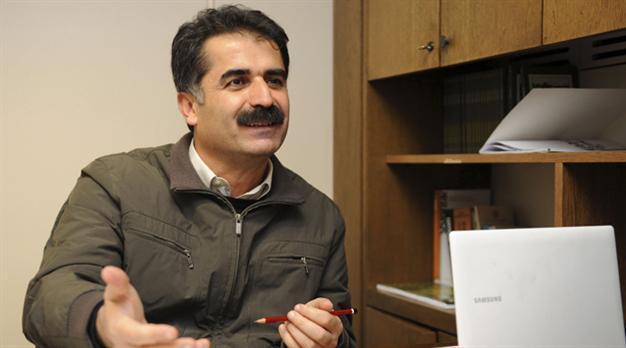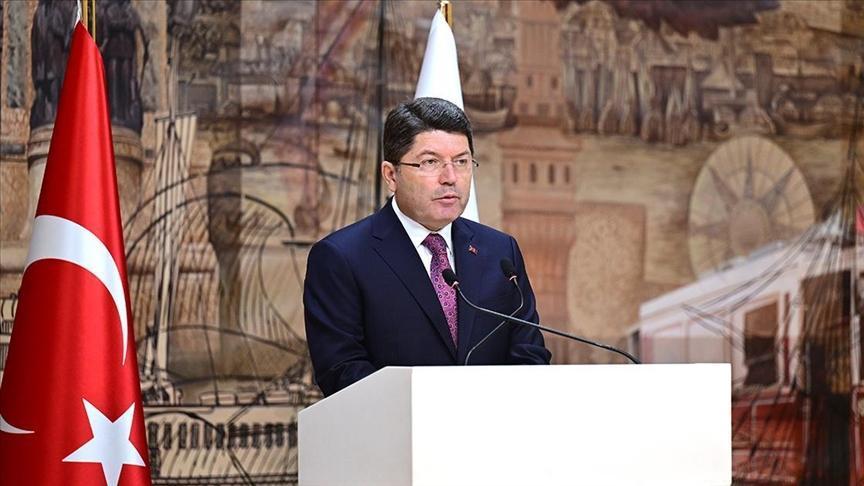PKK kidnaps Turkish lawmaker
ISTANBUL

Hüseyin Aygün. REUTERS photo
Suspected members of the outlawed Kurdistan Workers' Party (PKK) kidnapped a deputy from the main opposition Republican People's Party (CHP) late yesterday.CHP Tunceli deputy Hüseyin Aygün was returning from a visit to Ovacık district in the eastern province when PKK militants stopped his vehicle at around 7 p.m., broadcaster CNNTürk reported.
Aygün was traveling with journalist Kadir Merkit of daily Akşam and his aide, Deniz Tunç. PKK militants let Merkit and Tunç go but kidnapped Aygün.
Relating how the kidnapping occurred in today’s daily Akşam, Merkit said the militants first attempted to convince the deputy to leave with them for about 20 minutes but then threatened to kill Aygün when he refused to go willingly.
After stopping his vehicle and forcing the three passengers out, PKK militants told Aygün that he was to come with them because it had been decided by the organization. "You will be our guest for a few days," PKK militants told Aygün, according to Merkit.
Aygün tried to convince the militants to set him free, telling them, "You know me, I am a deputy from Tunceli, what you are doing is wrong," but the militants pressed on, telling Aygün he would either come willingly or that they would use force.
"I will not go with you. Kill me if you like," Aygün told the militants, according to Merkit. "I have worked for the interests of Tunceli locals and Alevis up to this day."
PKK militants then threatened to kill Aygün, allegedly saying: "We told you not to resist. We will put a bullet in your head if you don't come with us," to which Aygün replied, "I will not go, shoot me if you want."
The militants moved to take Aygün away after the conversation. Merkit and Tunç wanted to object but were stopped in their tracks as the militants threatened to kill them as well, according to Merkit.
"Aygün yelled at us to do as they said as he was being dragged away into a woodland in order to protect us," Merkit said.
Turkish President Abdullah Gül called CHP leader Kemal Kılıçdaroğlu after receiving news of the kidnapping to express his concern over the incident. Turkish Prime Minister Recep Tayyip Erdoğan also called Kılıçdaroğlu today, saying he condemned the act.
Kılıçdaroğlu said, "the point where terror has escalated to is thought-provoking" and that "Turkey was being dragged into a quagmire."
CHP spokesperson Haluk Koç said yesterday that it was the first time the PKK had kidnapped an elected deputy and added that it was time for politicians to stop placing the blame on each other and act together. "It is enough," Koç said.
AKP deputy chairman Ömer Çelik wrote on his Twitter account that the kidnapping of a lawmaker was unacceptable and that it was an attack against the entire Parliament. Another deputy chairman for the party, Hüseyin Çelik, made a statement of a similar nature, saying the kidnapping was directed at the collective identity of the Parliament.
But another AKP deputy, Şamil Tayyar, said the kidnapping was staged, tweeting: "The PKK is keeping the CHP deputy as a guest, have fun chatting. The people will not fall for this trick."
The Peace and Democracy Party (BDP) also reacted to the kidnapping, saying: "The incident is unacceptable. We demand the immediate release of Aygün."
A military operation was launched to rescue the lawmaker. The deputy’s family, however, called on the operation to be halted for fear that it could endanger Aygün’s life.
The PKK is listed as a terrorist organization by Turkey, the United States and the European Union.
Aygün had drawn ire with remarks on Alevism, Dersim Massacre
A lawyer by profession, Hüseyin Aygün is best known for being a human rights activist. He was among the founders of the Tunceli Bar Association and was the driving force behind the publication of the first ever newspaper published in the Zazaki language in Turkey.
Aygün had caused controversy recently when he said "Alevism is a religion," drawing ire especially from the ruling Justice and Development Party (AKP). Fellow deputies from his Republican People’s Party (CHP) also objected to his remarks, prompting CHP leader Kemal Kılıçdaroğlu, an Alevi himself, to say: "Alevism is not a religion, but a belief. It is a part of Islam."Aygün had fallen at odds with his party earlier when he said the CHP and the Turkish state was responsible for the Dersim Massacre in 1938-39 and that "Atatürk had full knowledge about what was going on."
The statements completely contradicted party policy, and numerous CHP deputies requested that Aygün be expelled from the party.
The controversial deputy had also defended education in mother tongue, "not only in Kurdish but also in the Arabic, Zazaki and Laz languages."
















